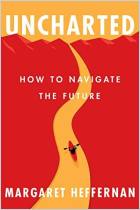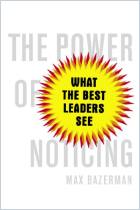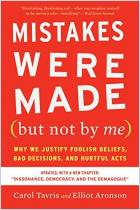Зарегистрируйтесь на getAbstract, чтобы получить доступ к этому краткому изложению.

Зарегистрируйтесь на getAbstract, чтобы получить доступ к этому краткому изложению.
Margaret Heffernan
Willful Blindness
Why We Ignore the Obvious at Our Peril
Walker & Company, 2012
Что внутри?
Hindsight is 20/20, but daily insight is not, so take off your blinders and avoid future trauma by opening your eyes.
Recommendation
Professor, blogger and documentary-film producer Margaret Heffernan borrows an analogy from neuroscientist Robert Burton to explain “willful blindness”: Like water moving in a riverbed, the flow of ideas, experiences and information over time carves out a belief system in your neural pathways. Working with and living among like-minded people increases the flow, until the banks of the riverbed grow so high that they become blinders, obscuring other options and points of view. Succinctly presenting her intriguing concept, Heffernan argues that this ultimately dangerous myopia may lead you to overlook threats to your own security or to the well-being of your community. getAbstract recommends that you bravely develop 360° eyesight by reading this revealing and informative exposé.
Summary
About the Author
Documentary-film producer Margaret Heffernan, CEO of Information Corporation, blogs for the Huffington Post, CBSMoneywatch and Inc., and is a visiting professor at Simmons College.





















Comment on this summary